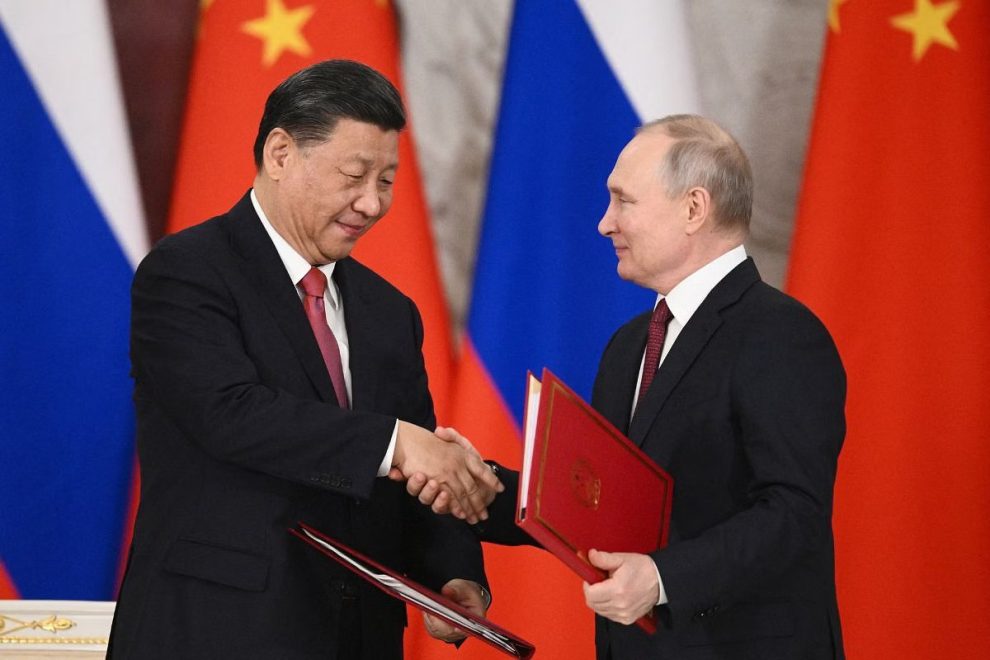Xi Jinping made a three-day visit to Moscow and it has been marked as a turning point in the China-Russia relationship. Xi Jinping, the Chinese president is optimistic that this alliance can be transformed into a force that embodies Beijing’s vision as a counterargument to the present global order. China and Russia outlined a broad long-term plan for their developing relationships on Wednesday, in which they vowed to work together to counter the United States Indo-Pacific strategy. The extensive discussion with President Vladimir Putin led both sides to jointly state in Mandarin and Russian that they firmly criticize the politicization of multilateral platforms and attempts by certain nations to satisfy the agenda of multilateral platforms with unrelated matters and dilute the core objective of the relevant systems.
We believe that this statement alluded to deep divisions inside the G20 which is an intergovernmental forum comprising 19 countries and the European Union, the meeting ahead of this year, which will be hosted by India. China and Russia earlier this month objected to references to the Situation in Ukraine, preventing the G20 foreign ministers meeting in New Delhi from releasing a joint statement.
According to the lengthy joint statement, both sides firmly resist the cobbling together of a closed and exclusive bloc structure in the Asia-Pacific region, promoting bloc politics and camp conflict. Chinese authorities have previously referred to the Quad as an “exclusive bloc” of India, the United States, Australia, and Japan. The statement accused the United States of having a “Cold War mindset” and claimed that its Indo-Pacific policy “adversely affects regional security and peace.”
Instead, China and Russia announced jointly that they were dedicated to establishing an equal, fair, and comprehensive security system in the Asia-Pacific area that does not target third countries,” emphasizing the adoption of the phrase “Asia-Pacific” rather than “Indo-Pacific”. During extensive talks in Moscow, both Mr. Xi and Mr. Putin praised the strength of their relationships. The Chinese leader referred to Beijing’s position paper on the Ukraine crisis once more, but the visit did not appear to indicate any progress in Chinese efforts to mediate peace in Ukraine, which Chinese media have emphasized in the aftermath of the recent landmark Saudi-Iran deal signed in Beijing. On Wednesday, the Chinese Foreign Ministry avoided commenting on reports that Mr. Xi will likely make a phone call with the president of Ukraine, Volodymyr Zelenskyy.
The joint statement attacked the West over Ukraine, stating that both parties oppose any nation or group of nations pursuing advantages in military, political, and other spheres at the expense of other countries’ legitimate security interests. It said that the Russian side welcomes China’s willingness to play a favorable role in the political and diplomatic resolution of the Ukraine crisis. Mr. Xi emphasized the sustainability of China-Russia relations on Tuesday, saying they were “compatible with historic logic and a Chinese strategic choice.” He added that It will not be changed by any turn of events and that the trends unseen in a century are developing faster and the worldwide power dynamics are undergoing a dramatic transformation.
Both committed to cooperating in multilateral groups such as BRICS, as well as to revive engagement in the recently inactive Russia-India-China alliance. Both governments also stated that they would Support each other vehemently in defending their essential interests, which include democracy, the integrity of the country, security, and prosperity. Russia stated that it supports China in Taiwan and firmly backs China’s efforts to protect its democracy and territorial unification.
The actual narrative of Xi’s visit to Moscow is Beijing’s emphasis on major country politics with Chinese traits, with Putin acting as a junior partner.









Add Comment